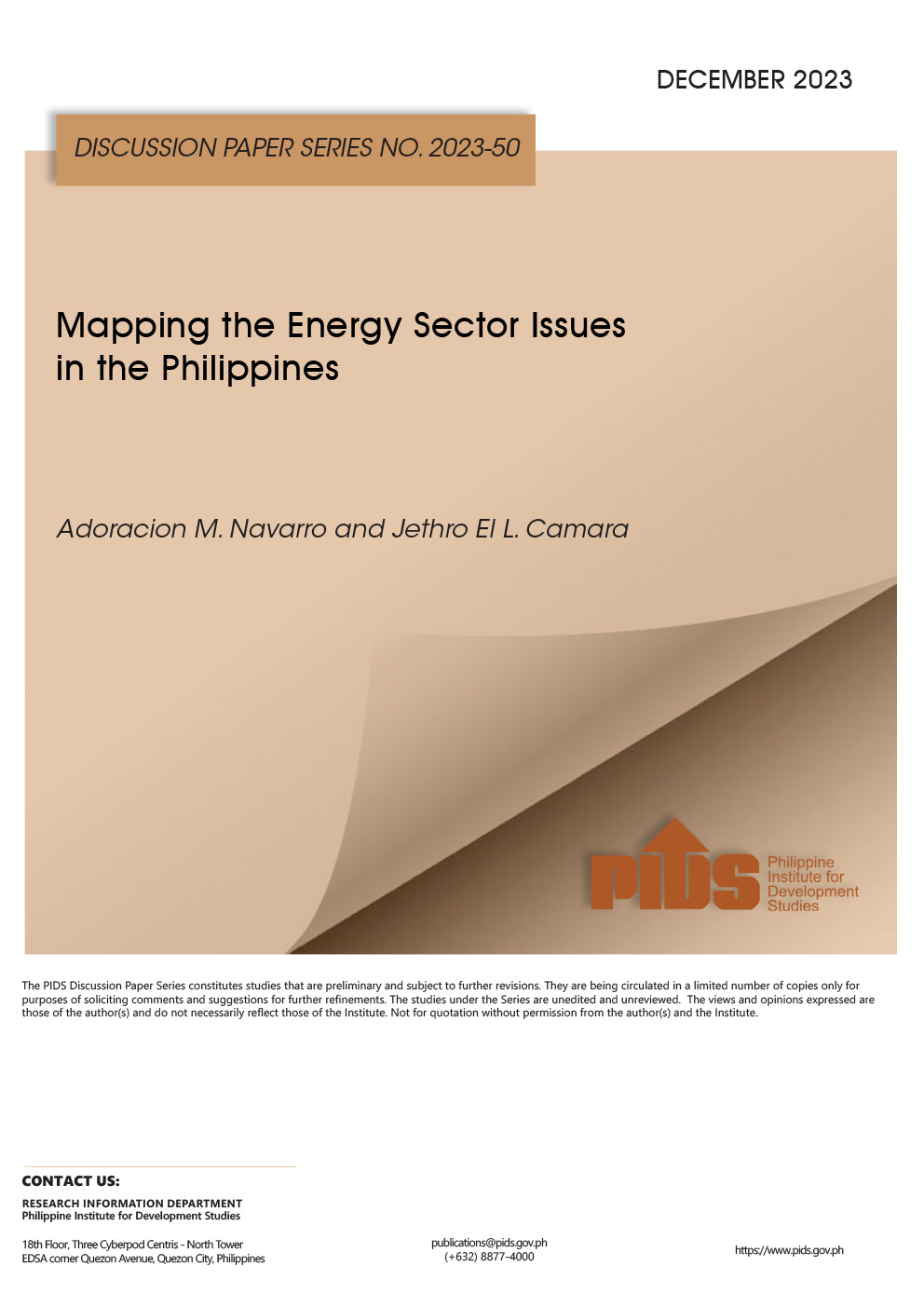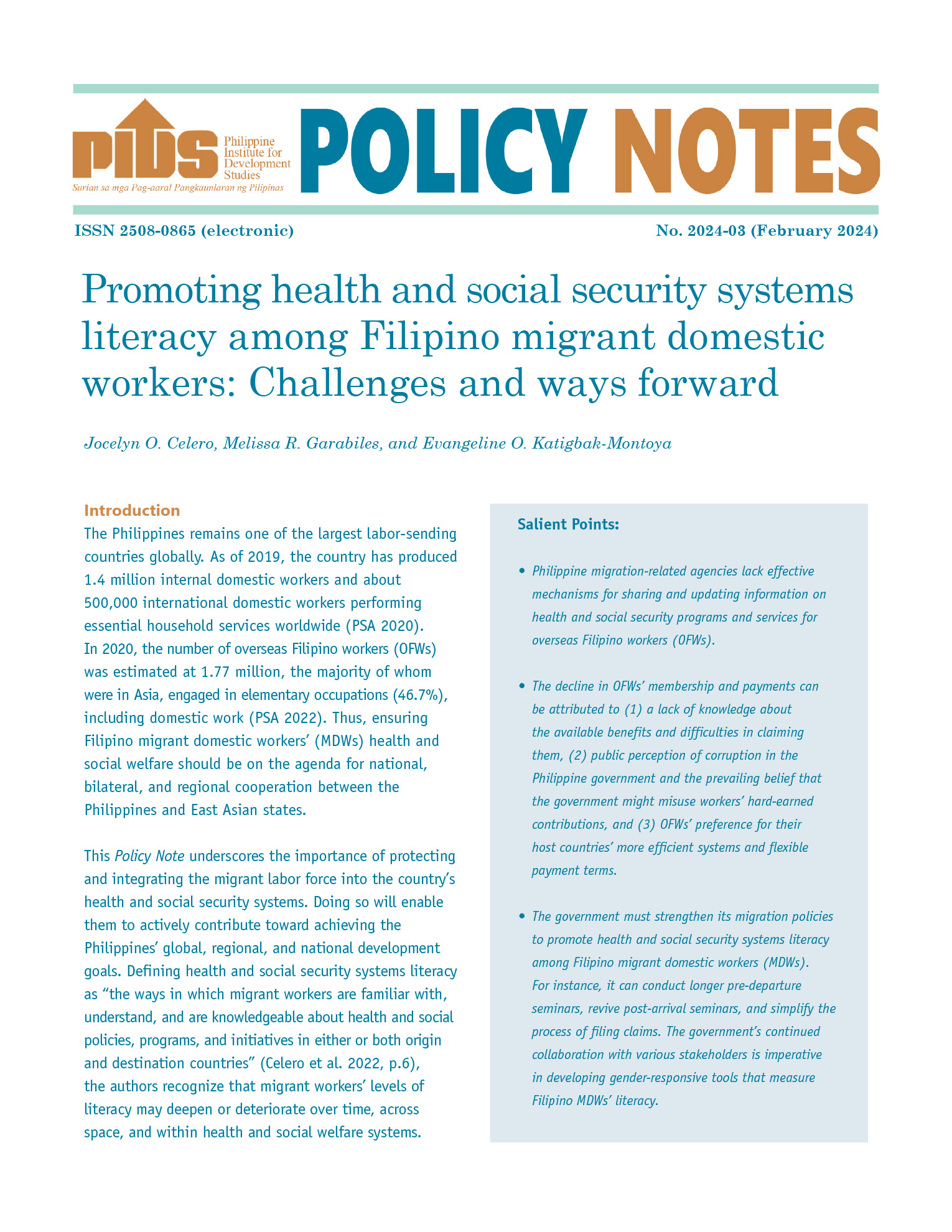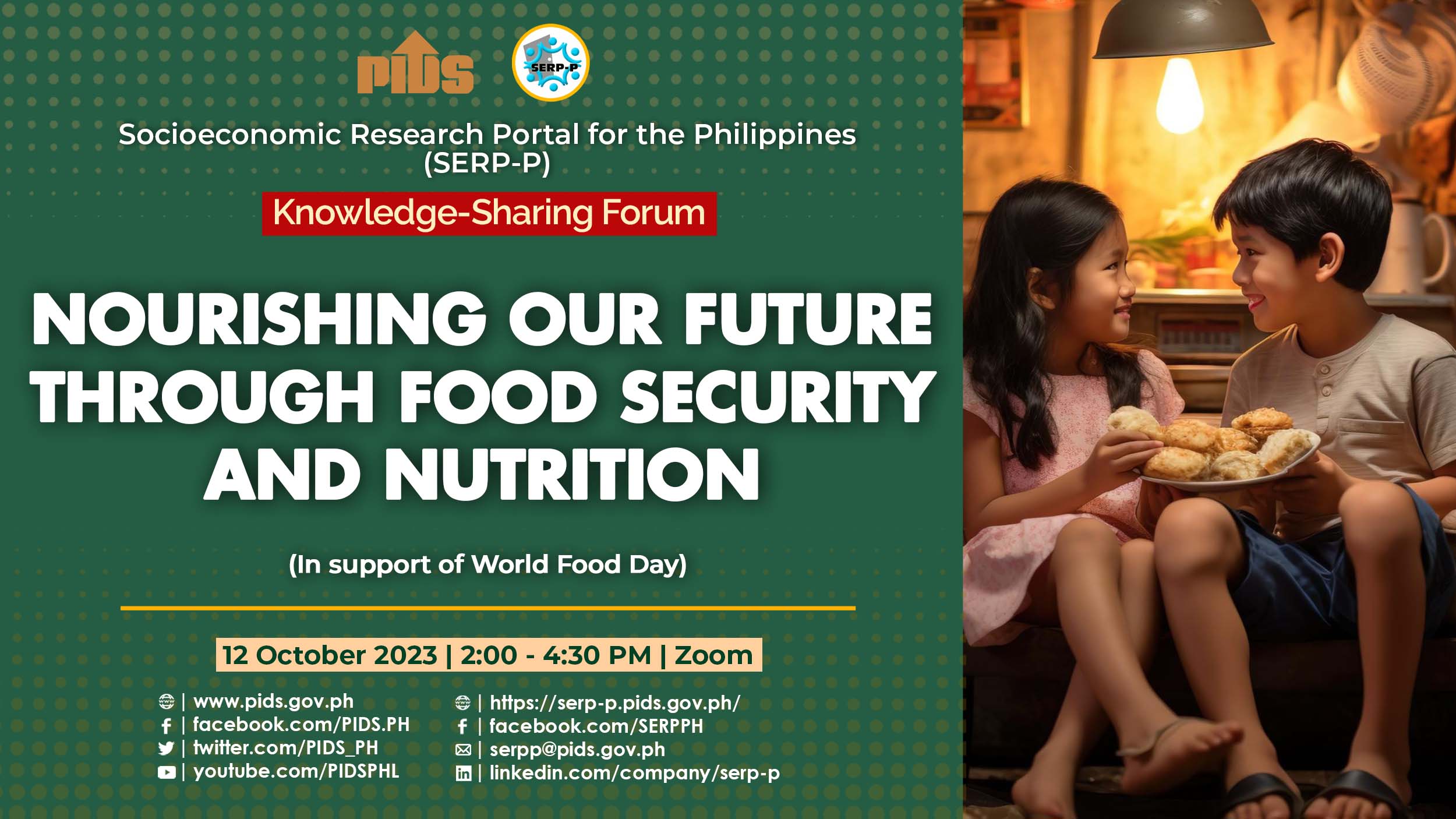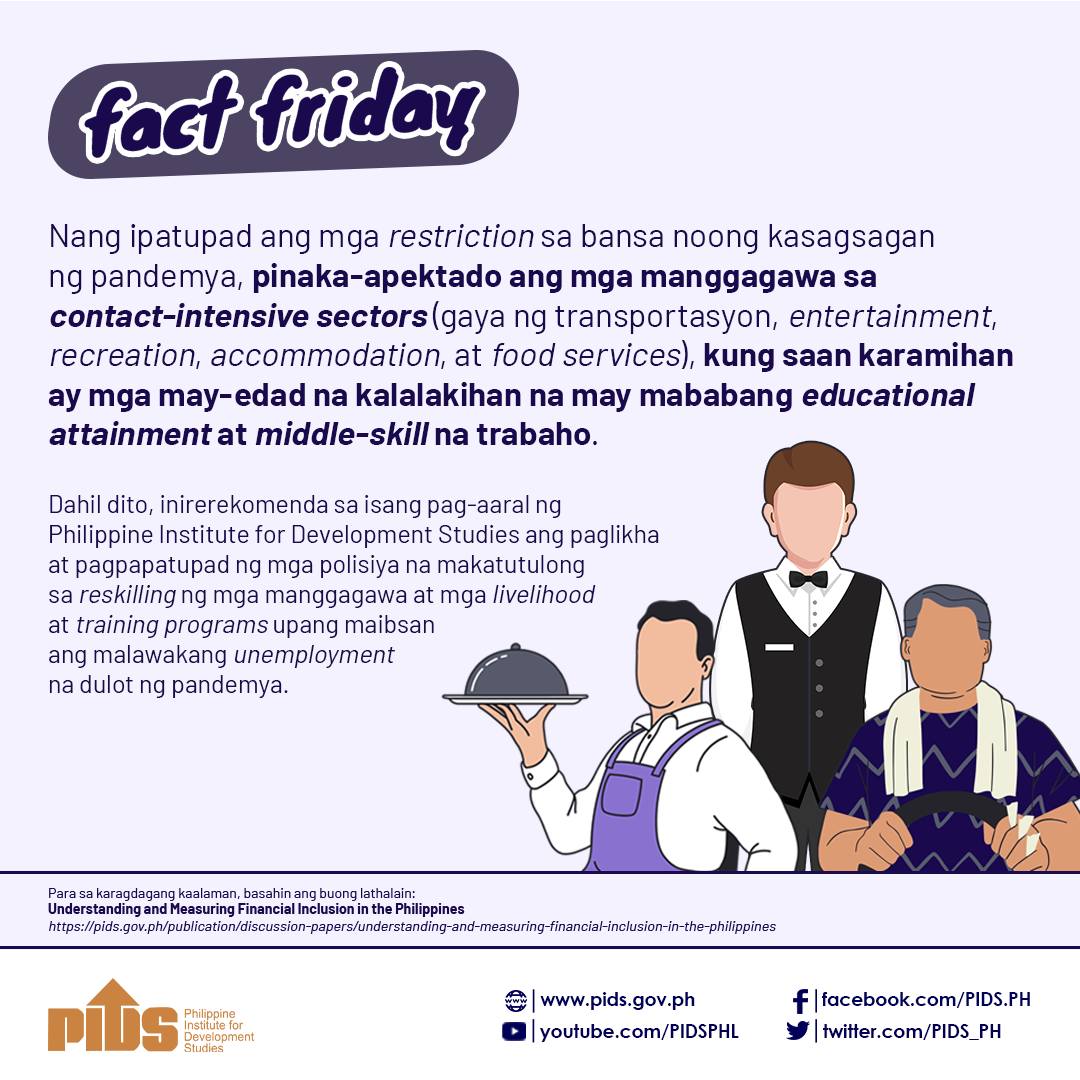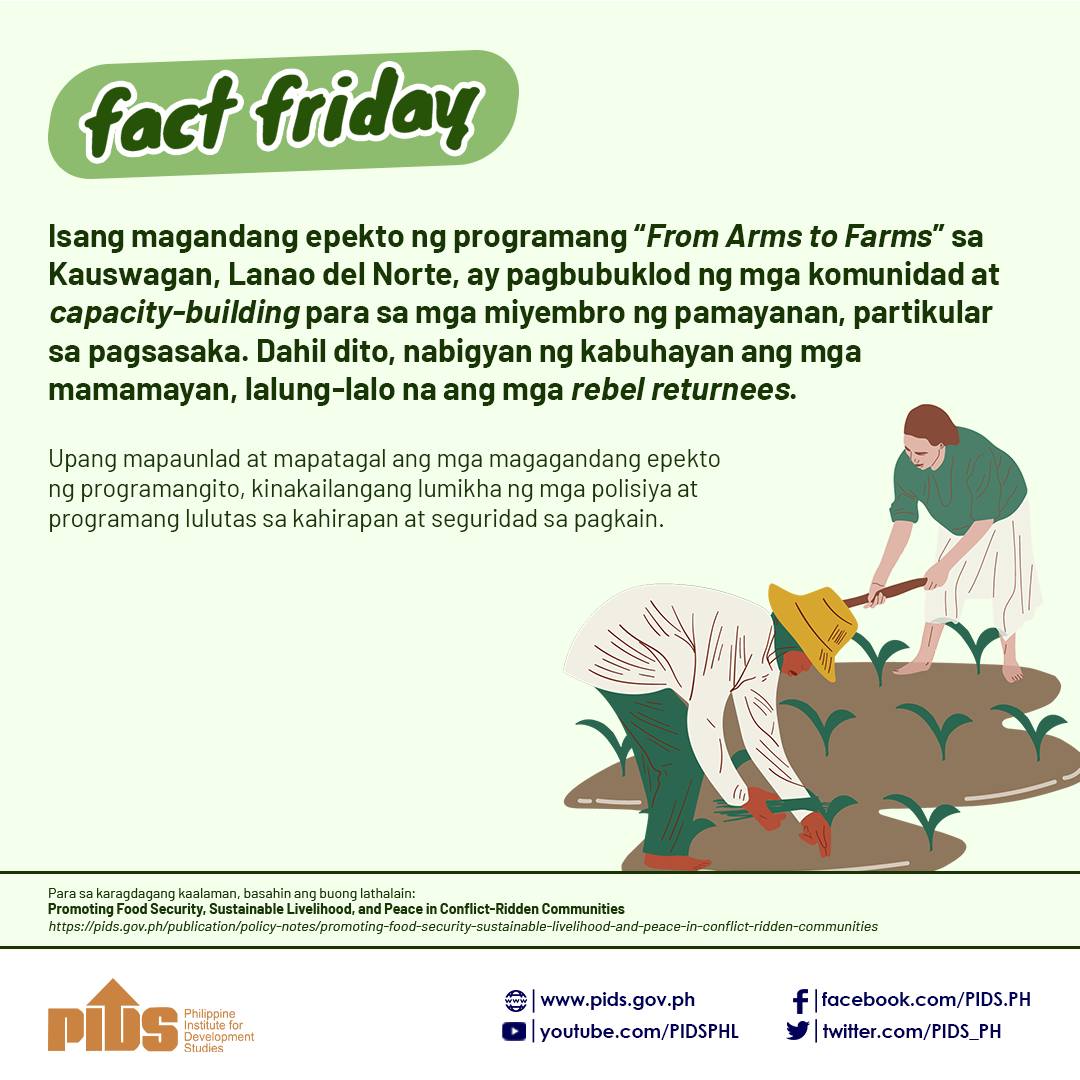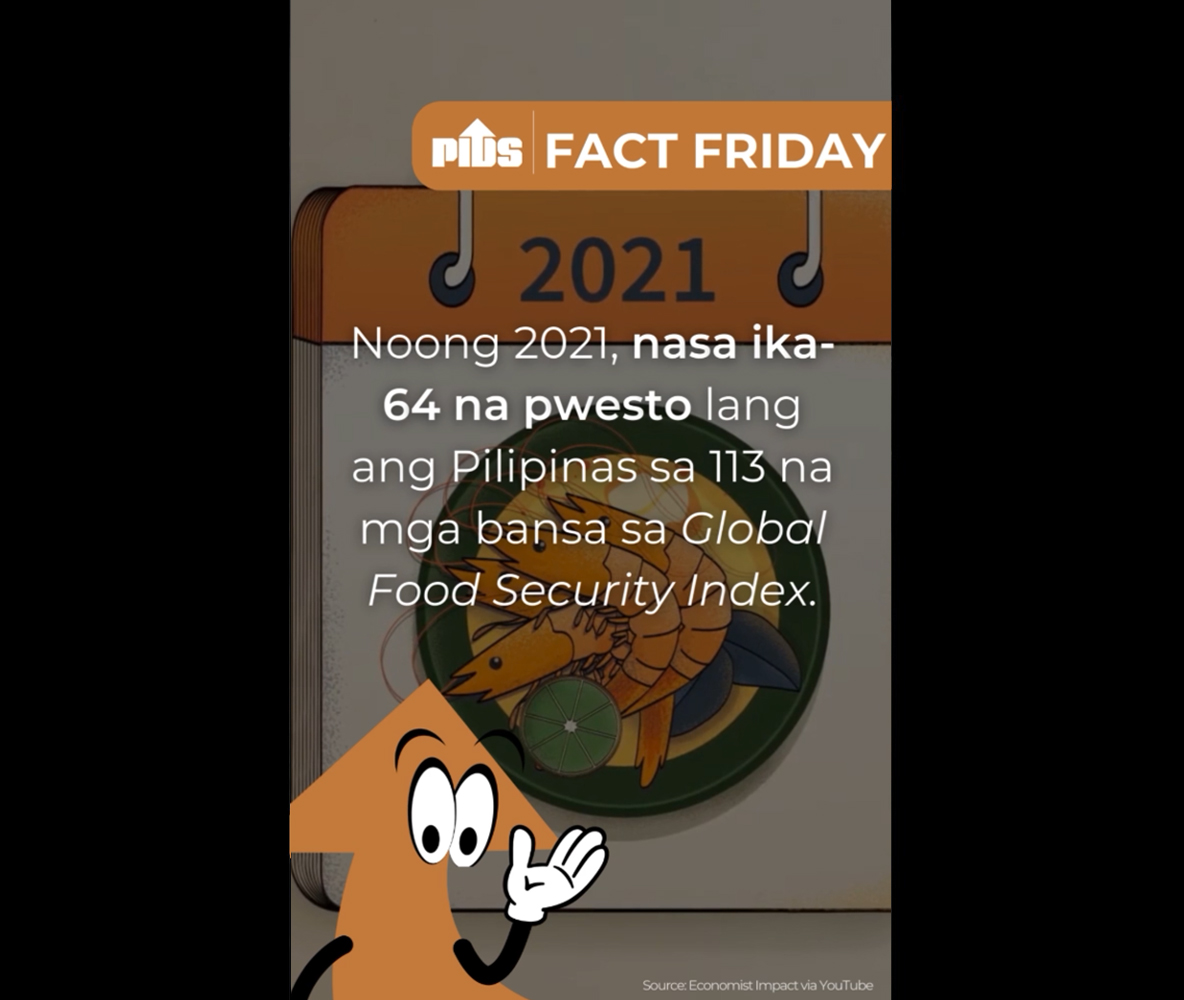Having access to sufficient, safe and nutritious food has always been a concern in the Philippines. However, the pandemic and the impact it has had on food supply chains has further heightened these food security concerns.
For a reminder of this heightened state of concern, just look back to earlier this year, to the days that lead up to the lockdown, when panicked shoppers flocked supermarkets and grocery stores in droves and emptied store shelves. Back then, they feared that the community quarantine would close-off Metro Manila and create food shortages. True enough, military checkpoints were set up, cutting off supply chains and impeding the flow of goods into the capital.
The growing concern over food security was as palpable at the policy level as it was on the ground. In fact, it was one of the first issues that the COVID-19 Inter-Agency Task Force (IATF) tried to address.
If you recall, the IATF imposed community quarantine— suspending travel, closing schools and banning mass gatherings— in the entirety of Metro Manila on March 12 through Resolution No. 11. In IATF Resolution No. 12, which it released the very next day, the task force made sure to allow the unhampered movement of cargo to and from Metro Manila to avert any threat of a shortage of basic food or essential medicine.
Both the panicked grocery shoppers and the IATF’s prioritization of goods’ movement shows us that food security is an essential issue that we cannot ignore, especially now that we face global health and economic crises.
Yet, questions remain about whether we are doing enough to manage and maximize our locally grown food to build resilience and enhance Filipinos’ food security.
These questions were discussed at a recent virtual town hall discussion organized by Stratbase ADR Institute entitled “Managing Food Supply Chains Amidst a Pandemic: A Multi-Stakeholder Perspective.” As the event’s title suggests, the event brought together public and private sector stakeholders from the agriculture, livestock, and poultry industries to discuss the country’s food supply challenges and opportunities.
One of the key sentiments that stood out was what seemed like a perceived disconnection between the government’s policies and its actions that have left local food industries at a disadvantage.
Speaking at the virtual town hall, Dr. Roehlano Briones of the Philippine Institute of Development Studies referred to the problem as a “divergence between policy and implementation.” Briones further suggested that a “harmonization” of policies is needed to ensure no food supply disruptions in future emergencies and that “stimulus programs should offer appropriate levels of support for agriculture, targeted to small farmers and fisherfolk.”
The need for recalibrated policies to support local industries was also emphasized by Philippine Association of Feed Millers Inc. (PAFMI) President Nikki Sarmiento-Garcia, who said that policies should not “steal the livelihood from the local industry.” Garcia further emphasized the need for data-driven policies to address the imbalanced importation and exportation practices currently in place.
Stratbase ADR Institute President Prof. Dindo Manhit also stressed the need for a balanced import policy and underscored that local demand should be sustained by local supply. Manhit further noted that close cooperation between the government and industry sector is necessary to protect and enable agricultural food production and distribution during this crisis and beyond.
Importation has a place in the food security conversation. Still, stakeholders from the local industries are apprehensive that the government is allowing the rapid increase in the importation of several food and agricultural products and that this will further hurt the already struggling local food growers. This concern stems from the sharp increase of imported products despite the availability of local sources.
An example of this is the importation of dressed chicken. According to data from the Department of Agriculture, in September last year, dressed chicken sourced from abroad amounted to only 17,179 Metric Tons (MT). However, as of September 2020, the amount of imported dressed chicken on inventory has now more than doubled to 41,035 MT.
This data is worrisome since too much importation can have harsh effects on local producers who, due to the pandemic, are trying to still get back on their feet economically. The DA must seriously look into this and find ways to work with local industries to support our local food growers and producers.
Food security is strongest when food is produced locally. Locally grown food is fresher since it has to travel shorter distances from farms to consumers. It also bolsters local economies by creating a whole ecosystem of jobs and opportunities for Filipino businesses and communities.
There is a saying that once in your life, you’ll need a doctor, lawyer, policeman, or preacher, but every day — three times a day — you need a farmer. This saying neatly captures the vital role that the agriculture, fisheries and livestock sectors play in our daily lives and in the grander goal of achieving local food security. However, it doesn’t mention that we, in turn, have a responsibility to these local food producers to ensure that both our policies and actions support their growth, particularly during these trying times.
For a reminder of this heightened state of concern, just look back to earlier this year, to the days that lead up to the lockdown, when panicked shoppers flocked supermarkets and grocery stores in droves and emptied store shelves. Back then, they feared that the community quarantine would close-off Metro Manila and create food shortages. True enough, military checkpoints were set up, cutting off supply chains and impeding the flow of goods into the capital.
The growing concern over food security was as palpable at the policy level as it was on the ground. In fact, it was one of the first issues that the COVID-19 Inter-Agency Task Force (IATF) tried to address.
If you recall, the IATF imposed community quarantine— suspending travel, closing schools and banning mass gatherings— in the entirety of Metro Manila on March 12 through Resolution No. 11. In IATF Resolution No. 12, which it released the very next day, the task force made sure to allow the unhampered movement of cargo to and from Metro Manila to avert any threat of a shortage of basic food or essential medicine.
Both the panicked grocery shoppers and the IATF’s prioritization of goods’ movement shows us that food security is an essential issue that we cannot ignore, especially now that we face global health and economic crises.
Yet, questions remain about whether we are doing enough to manage and maximize our locally grown food to build resilience and enhance Filipinos’ food security.
These questions were discussed at a recent virtual town hall discussion organized by Stratbase ADR Institute entitled “Managing Food Supply Chains Amidst a Pandemic: A Multi-Stakeholder Perspective.” As the event’s title suggests, the event brought together public and private sector stakeholders from the agriculture, livestock, and poultry industries to discuss the country’s food supply challenges and opportunities.
One of the key sentiments that stood out was what seemed like a perceived disconnection between the government’s policies and its actions that have left local food industries at a disadvantage.
Speaking at the virtual town hall, Dr. Roehlano Briones of the Philippine Institute of Development Studies referred to the problem as a “divergence between policy and implementation.” Briones further suggested that a “harmonization” of policies is needed to ensure no food supply disruptions in future emergencies and that “stimulus programs should offer appropriate levels of support for agriculture, targeted to small farmers and fisherfolk.”
The need for recalibrated policies to support local industries was also emphasized by Philippine Association of Feed Millers Inc. (PAFMI) President Nikki Sarmiento-Garcia, who said that policies should not “steal the livelihood from the local industry.” Garcia further emphasized the need for data-driven policies to address the imbalanced importation and exportation practices currently in place.
Stratbase ADR Institute President Prof. Dindo Manhit also stressed the need for a balanced import policy and underscored that local demand should be sustained by local supply. Manhit further noted that close cooperation between the government and industry sector is necessary to protect and enable agricultural food production and distribution during this crisis and beyond.
Importation has a place in the food security conversation. Still, stakeholders from the local industries are apprehensive that the government is allowing the rapid increase in the importation of several food and agricultural products and that this will further hurt the already struggling local food growers. This concern stems from the sharp increase of imported products despite the availability of local sources.
An example of this is the importation of dressed chicken. According to data from the Department of Agriculture, in September last year, dressed chicken sourced from abroad amounted to only 17,179 Metric Tons (MT). However, as of September 2020, the amount of imported dressed chicken on inventory has now more than doubled to 41,035 MT.
This data is worrisome since too much importation can have harsh effects on local producers who, due to the pandemic, are trying to still get back on their feet economically. The DA must seriously look into this and find ways to work with local industries to support our local food growers and producers.
Food security is strongest when food is produced locally. Locally grown food is fresher since it has to travel shorter distances from farms to consumers. It also bolsters local economies by creating a whole ecosystem of jobs and opportunities for Filipino businesses and communities.
There is a saying that once in your life, you’ll need a doctor, lawyer, policeman, or preacher, but every day — three times a day — you need a farmer. This saying neatly captures the vital role that the agriculture, fisheries and livestock sectors play in our daily lives and in the grander goal of achieving local food security. However, it doesn’t mention that we, in turn, have a responsibility to these local food producers to ensure that both our policies and actions support their growth, particularly during these trying times.

